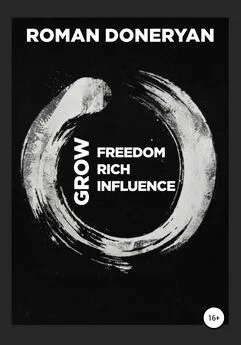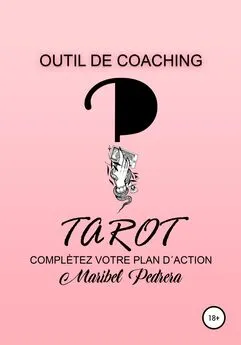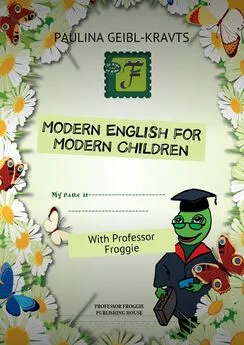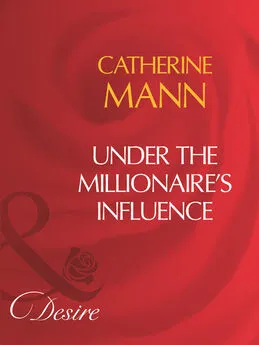Pelham Wodehouse - Petticoat Influence
- Название:Petticoat Influence
- Автор:
- Жанр:
- Издательство:неизвестно
- Год:неизвестен
- ISBN:нет данных
- Рейтинг:
- Избранное:Добавить в избранное
-
Отзывы:
-
Ваша оценка:
Pelham Wodehouse - Petticoat Influence краткое содержание
Petticoat Influence - читать онлайн бесплатно полную версию (весь текст целиком)
Интервал:
Закладка:
Bob did get his Blue. I felt quite a thrill when I thought of what Mr. Hook had suffered for my sake. Because, you see, there were lots of people who thought Bob wasn't good enough to be in the team. Father read me a bit out of a sporting paper in which the man who wrote it compared the two teams and said that "the weak spot in the Oxford side is undoubtedly Romney," and a lot of horrid things about his not feeding his forwards properly. I said, "I'm sure that isn't true. Bob's always giving dinners to people. In fact, that's the very reason why -"
I stopped.
"Why what?" said father.
"Why he's so hard up, father, dear. He is, you know. It's because of his twenty-first birthday, he said."
"I shouldn't wonder, my dear. I Remember my own twenty-first birthday celebrations, and I don't suppose things have altered much since my time. You must tell Bob to come to me if he is in difficulties. We mustn't be hard on a man who's playing in the 'Varsity match, eh, my dear?"
I said, "No; I'll tell him."
Bob stopped with us the night before the match. He hardly ate anything for dinner, and he wanted toast instead of bread. When I met him afterwards, though, he was looking very pleased with things and very friendly.
"It's all right about those bills," he said. "The governor has given me a cheque. He's awfully bucked about my Blue."
"And it was all me, Bob," I cried. "It was every bit me. If it hadn't been for me you wouldn't be playing to-morrow. Aren't you grateful, Bob? You ought to be."
"If you can spare a moment and aren't too busy talking rot," said Bob, "you might tell me what it's all about."
"Why, it was through me you've got your Blue."
"So I understand you to say. Mind explaining? Don't, if it would give you a headache."
"Why, I met the Oxford captain at Aunt Edith's dance, and I said how anxious you were to get your Blue, and I begged him to put you in the team. And the very next Saturday you were tried for the first time."
Bob positively reeled, and would have fallen had he not clutched a chair. I didn't know people ever did it out of novels. He looked horrible. His mouth was wide open and his face a sort of pale green. He bleated like a sheep.
"Bob, don't !" I said. "Whatever's the matter?
He recovered himself and laughed feebly. "All right, Kid," he said, "that's one to you. You certainly drew me then. By gad! I really thought you meant it at first."
My eyes opened wide. "But, Bob," I said, "I did."
His jaw fell again.
You mean to tell me," he said slowly, "that you actually asked - Oh, my aunt!"
He leaned his forehead on the mantelpiece. "I can't stay up after this. Good Lord! the story may be all over the 'Varsity! Suppose somebody did get hold of it! I couldn't live it down."
He raised his head. "Look here, Joan," he said; "if a single soul gets to hear of this I'll never speak to you again." And he stalked out of the room.
I sat down and cried.
He would hardly speak a word to me next morning. Father insisted on his having breakfast in bed, so as not to let him get tired; so I did not see him till lunch. After lunch we all drove off to Queen's Club in Aunt Edith's motor. While Bob was upstairs packing his bag, father said to me, "Here's an honour for us, Joan. Bob is bringing the Oxford captain back to dinner to-night."
I gasped. I felt it would take all my womanly tact to see me through the interview. He wouldn't know how offended Bob was at being put in the team, and he might refer to our conversation at the dance.
Bob was evidently still wrapped in gloomy despair when he joined us. He was so silent in the motor that father thought he must be dreadfully nervous about the match, and tried to cheer him up, which made him worse. We arrived at the ground at last, and Bob went to the pavilion to change.
We sat just behind two young men whose whole appearance literally shrieked the word "Fresher"! When I thought that Bob had been just like that a year before and that he was really quite different now, I felt so proud of my efforts to improve him that I was quite consoled for the moment. I was in a gentle reverie when father nudged me, and I woke up to find that the two young men were discussing Bob. "Yes, that's all very well," one of them was saying, the one in the brighter brown suit, "but my point is that he's too selfish. He doesn't feed his forwards enough."
I wondered whether this young man had been reading the sporting paper.
"He's pretty nippy, though," said the other.
"Personally, if I had been skipper," said the bright brown one, "I should have played Welby-Smith. Why they ever chucked him licks me."
"Well, I don't know," the other was beginning, when his words were drowned in a burst of applause, as the Cambridge team came on to the field. There was another shout a moment later, and Oxford appeared, Bob looking like a dog that's just going to be washed.
"Good," said the bright young man; "we've won the toss. The Tabs'll have to play with the sun in their eyes second half. Just when it's setting, too."
I was glad to hear this, because I know what a nuisance the sun in one's eyes is at cricket, and I suppose it must be just as bad at football.
There was a lot of running about and kicking at first. A little Cambridge man with light hair got the ball after a bit, and simply tore down the touch-line till he came to Bob, and Bob got in his way, and he kicked it to another man, only before he'd got it the other man who had been standing nearest to Bob at the beginning of the game took it away from him and sent it a long way up the field.
"Well played, Bob!" said father. "That little man with the light hair is Stevens, the international. He's the most dangerous man Cambridge have got. Bob will have his work cut out to stop him. Still, he did it that time all right."
The ball was being kicked about quite near the Cambridge goal now, so I thought Oxford must be getting the best of it. The little man was standing about by himself looking on, as if he were too important a person to mix himself up with the others. But suddenly one of the other Cambridge men sent the ball in his direction and he was off with it like a flash, and there seemed to be nobody there to stop him except Bob, who was jumping about half-way down the field.
All the Cambridge men raced down in the direction of the Oxford goal, and Bob met the little man as he had done before and made him pass to the other man. Then Bob rushed for this man, though there was another Oxford player rushing for him too, and the Cambridge man with the ball waited till they were both quite near him and then kicked it back to the international.
"Oh, Romney, you rotter!" said one of the young men in front of me, in a voice of agony and then there was a perfect howl of joy from half the crowd, for the international, who hadn't anyone between him and the goal but the goalkeeper, who looked nervous, ran round and shot the ball through into the net. "Well, there's one of their goals," said the not quite so bright young man. Chap writing in the Chronicle this morning said Oxford would be lucky if they only had three scored against them. What a rotter Romney was to leave Stevens like that! Why on earth can't he stick to his man?"
Father looked quite grey and haggard.
"If Bob's going to play the fool like that," he said, "he'd better have stayed at home."
"What didn't he do?" I asked.
"He didn't stick to his man. He gets up against an international forward, and the first thing he does is to leave him with a clear field. He must stick to Stevens."
The whole air seemed full of Bob's wrong-doing. I suppose it was a sort of wireless telegraphy or something that made me do it. At any rate, I jumped up and shrieked in front of everybody, in a dead silence, too: "You must stick to Stevens, Bob!"
Then there was a roar of laughter. I suppose it must have sounded funny, though I didn't mean it; and everybody who wanted Oxford to win took up the cry. Only after shouting, "You must stick to Stevens, Bob!" once, they began to shout, "Buck up, Oxford!"
Bob turned scarlet - I was looking at him through father's field-glasses - and I believe he was swearing to himself. Then the game began again.
Bob told me afterwards, in a calmer moment, that my cry was the turning-point. Up to then he had been fearfully ashamed of himself for letting the Cambridge man kick the ball away from him, but that now be felt that he must look so foolish that it was not worth while trying to realize it. He said he was like the girl in Shakespeare who smiled at grief. He had passed the limits of human feeling. The result was that he found himself suddenly icy cool, without nerves or anxiety or anything. He isn't good at explaining his feelings, but I think I understand what he meant. I have felt it sometimes myself when, directly after I have had my best dress trodden on and torn at a dance, I have gone down to supper and found that all the meringues have been eaten. It is a sort of calm, divine despair. You know nothing else that can happen to you can be bad enough in comparison to be worth troubling about.
Anyhow, the result was that Bob began to play really splendidly. I can't judge football at all, of course, but even I could see how good he was. He slipped about as if he were made of India rubber. He sprang at Stevens and took the ball away from him. He kept kicking the ball back to the Cambridge goal. In fact, he thoroughly redeemed himself, and if it hadn't been for the Cambridge goalkeeper Oxford would have scored any number of times. Just before half-time an Oxford man did score, so that made them level.
"Well, Romney's done all right lately," said one of the young men. If he plays like that all the time we might win. What on earth he was doing at the start I can't think."
The sun was getting very low now, and Cambridge had to play facing it. It seemed to bother them a good deal, and Oxford kept on attacking, Bob coming up to help. At last, after they had been playing about twenty minutes, Stevens went off again, and Bob had to race back and stop him. He just managed to kick the ball over the touch-line. One of the Cambridge men picked it up and threw it in to another Cambridge man, but Bob suddenly darted between them, got the ball, and tore down the field. There were only two men in front of him besides the goalkeeper, and he wriggled past one of them, and father stood up and waved his hat and shouted instructions. Then the last Cambridge man bore down on him. It was thrilling. They were on the point of charging into one another when Bob kicked the ball to the left and ran to the right, and the Cambridge man shot past, and there was Bob in front of the goal just getting ready to shoot. Then the ball whizzed into the net, and all over the ground you could see hats flying into the air and sticks waving and a great roar went up from everywhere. It sounded like guns. "All the same," said the bright brown young man, he ought to have passed."
Nothing more was scored, so Oxford just won.
The end was rather funny, because I know you are wondering what I said to Mr. Hook and what he said to me, and what Bob did.
But it wasn't a bit like what I had expected. When I came down to the drawing-room after dressing for dinner Bob and the captain were standing talking by the fire.
"I think you have met my sister already," said Bob, dismally.
"I don't think I've had the pleasure," murmured the other man.
Bob turned to me.
"I thought you said you met Watson at Aunt Edith's ball. So you were pulling my leg after all?"
"I didn't. I wasn't. I said I met the captain of the Oxford football team."
"Well, that's Watson,"
"Are you captain, really?" I asked.
Читать дальшеИнтервал:
Закладка:

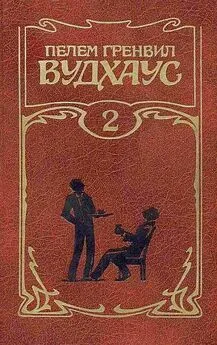
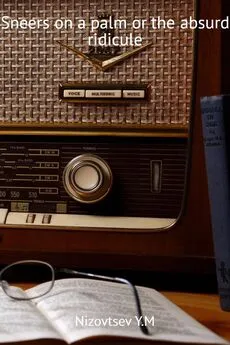
![О Генри - Линии судьбы [Tobin's Palm]](/books/1083826/o-genri-linii-sudby-tobin-s-palm.webp)
